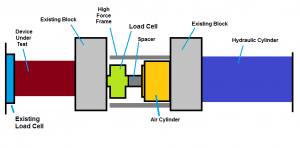
National Instruments (NI) refers to their alliance partners as System Integrators. Many partners feel all they need to do is write LabVIEW software that talks to some NI hardware, but many clients want much more than that. They are looking for complete system integration. Many would prefer a partner that can take care of most or all their system integration needs. That requires having expertise in multiple disciplines, perhaps backed up with a network of strategic partners that can go even deeper into specific areas.
For example, in our recent system integration projects, we have successfully solved challenging problems in many areas, including:
• Technology Transfer
• Startup company issues
• Life-cycle testing
• Flows
• Pressures
• Biomedical temperature monitoring
• Hydraulics
• Mechanical
• Lasers
• Optics
• Motion control
• Vision
• Safety
• Complex control dynamics
• Aerodynamics
• Electromagnetic Pulses
• Extreme Magnetic fields
• Tissue handling
Clearly, integrating these many concepts into one system requires knowledge in multiple disciplines I’ve found that Physics forms a good foundation for enabling my engineers to be at least conversant in every engineering field. That is why I always strive to hire engineers with a solid physics background. One of our most versatile engineers has a PhD in Physics. This flexibility doesn’t just help with system integration, it also helps us better communicate with our clients. If you hire “just a programmer” you must invest serious time in explaining your domain, and there is significant risk of costly misunderstandings.
Our customers appreciate that we “get it” quickly and completely. They are often impressed that we offer suggestions for improvements that go beyond what a typical programmer would provide.
In rare cases when we don’t have enough expertise in a given area, we have a network of trusted strategic partners. This allows us to have a dependable backup with breadth, so we can deliver a completely integrated solution to our customers.